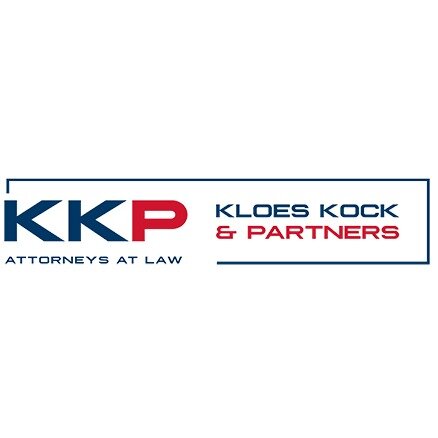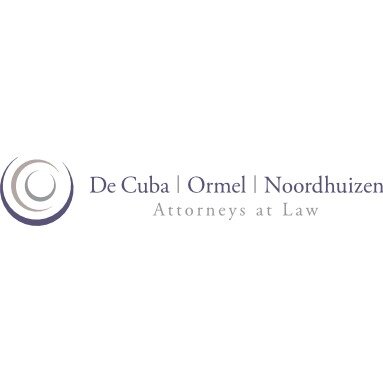Best Restructuring & Insolvency Lawyers in Oranjestad
Share your needs with us, get contacted by law firms.
Free. Takes 2 min.
List of the best lawyers in Oranjestad, Aruba
About Restructuring & Insolvency Law in Oranjestad, Aruba
Restructuring and insolvency law in Oranjestad, Aruba, provides a legal framework for handling individuals and businesses that are facing financial distress or insolvency. These laws establish procedures for reorganizing debts, liquidating assets, and prioritizing creditor claims to ensure an orderly resolution of financial obligations. The goal is to protect the interests of both debtors and creditors while maintaining economic stability. Aruba's legal system is based on Dutch civil law, with specific statutes and procedures tailored to the local context. This area of law is crucial for companies seeking to restructure debts and avoid bankruptcy, as well as for creditors aiming to recover outstanding payments.
Why You May Need a Lawyer
There are several situations where legal assistance in restructuring and insolvency matters may be necessary in Oranjestad, Aruba. Common scenarios include:
- Your business is having difficulty meeting its financial obligations and is looking for options to restructure its debts.
- You are a creditor seeking to recover debts from a company or individual facing insolvency.
- You need to negotiate with creditors or restructure existing contracts to avert insolvency proceedings.
- Your assets or property have been affected by the insolvency of another party and you need to protect your rights.
- You are seeking guidance on how insolvency proceedings could impact your personal or business finances.
- You require representation during court-ordered debt restructuring or bankruptcy proceedings.
A qualified lawyer can provide strategic advice, represent your interests in negotiations or proceedings, and help you navigate complex legal requirements efficiently.
Local Laws Overview
In Aruba, the legal framework for restructuring and insolvency is primarily governed by the Commercial Code and specific bankruptcy laws modeled after Dutch legislation. Key aspects include:
- Bankruptcy Proceedings - The process typically starts when a debtor is unable to pay debts as they fall due. Creditors or the debtor can file for bankruptcy in court. A court-appointed trustee manages the debtor's assets and oversees the liquidation process.
- Debt Restructuring - For individuals and businesses seeking to avoid bankruptcy, Aruba allows for court-supervised debt restructuring arrangements. These can involve negotiated payment plans and may require approval from a majority of creditors.
- Priority of Claims - Local law establishes a hierarchy for creditor claims, with secured creditors generally taking precedence over unsecured creditors. Certain obligations, such as employee wages or government taxes, may also be prioritized.
- Director and Officer Liability - Company directors and officers have legal obligations to avoid wrongful trading and protect creditors' interests during financial distress.
- Cross-Border Issues - Aruba's legal system addresses insolvency cases with international elements, including coordination with foreign courts and recognition of foreign bankruptcy orders.
It is important to consult a local attorney to ensure compliance with Aruba's specific laws and procedural requirements.
Frequently Asked Questions
What is the difference between restructuring and insolvency?
Restructuring involves reorganizing a company's debts and operations to overcome financial difficulties, typically to avoid insolvency. Insolvency means a person or company cannot pay debts as they become due, often leading to legal proceedings to resolve or discharge those debts.
Who can initiate insolvency proceedings in Aruba?
Both debtors and creditors can apply to the court to initiate insolvency (bankruptcy) proceedings in Aruba if the debtor is unable to pay debts when they fall due.
What are the key steps in a bankruptcy process in Aruba?
The process begins with a court filing, followed by the appointment of a trustee who manages the debtor's assets and oversees the liquidation or restructuring process. Creditors are notified and may file claims against the estate.
Can individuals and companies both file for bankruptcy?
Yes, both individuals and corporate entities in Aruba can seek bankruptcy protection if they meet the legal criteria for insolvency.
How are creditors paid during insolvency proceedings?
Creditors are paid according to a set legal order of priority. Secured creditors are generally paid first from the proceeds of secured assets, followed by preferential creditors, and then unsecured creditors.
Can insolvency be avoided through restructuring?
Yes, many businesses and individuals in Aruba can avoid insolvency by negotiating debt restructuring arrangements, often with the assistance of a lawyer and sometimes under court supervision.
Are company directors liable during insolvency?
Directors can be held liable if they engage in wrongful or fraudulent trading, fail to keep proper records, or neglect their duties to creditors during times of financial distress.
How long does the insolvency process usually take?
The duration varies depending on the complexity of the case, the number of creditors involved, and the type of assets to be liquidated or reorganized. It can range from several months to a few years.
What happens to employees during an insolvency process?
Employee contracts may be terminated or modified, but employees typically have certain protections under Aruban law, including priority for unpaid wages in the distribution of assets.
Do Aruba’s insolvency laws apply to foreign creditors?
Yes, foreign creditors can participate in insolvency proceedings in Aruba and make claims, subject to the same legal procedures as local creditors.
Additional Resources
If you need further information or support, these resources may be helpful:
- Aruba Chamber of Commerce and Industry - Offers guidance for businesses facing financial difficulties and provides legal resources.
- Courts of First Instance of Aruba - Handles bankruptcy and restructuring cases and provides information on court procedures.
- Local Insolvency Practitioners - Licensed lawyers and trustees specializing in insolvency law in Aruba.
- Government of Aruba - Department of Economic Affairs - Can provide information regarding business regulations and economic support programs.
Next Steps
If you believe you are facing potential restructuring or insolvency issues in Oranjestad, Aruba, consider the following steps:
- Assess your financial situation as early as possible to identify risks and available options.
- Engage a qualified local lawyer who specializes in restructuring and insolvency to explore strategic solutions and protect your interests.
- Gather all relevant financial documents such as contracts, outstanding debts, creditor lists, and asset inventories.
- Discuss with your lawyer whether formal insolvency proceedings are necessary, or whether an out-of-court restructuring might be possible.
- If court proceedings are initiated, comply with all court requirements and cooperate with the appointed trustee or legal representative.
Taking timely action and seeking professional legal advice will help you make informed decisions and optimize the outcome of your restructuring or insolvency case in Aruba.
Lawzana helps you find the best lawyers and law firms in Oranjestad through a curated and pre-screened list of qualified legal professionals. Our platform offers rankings and detailed profiles of attorneys and law firms, allowing you to compare based on practice areas, including Restructuring & Insolvency, experience, and client feedback.
Each profile includes a description of the firm's areas of practice, client reviews, team members and partners, year of establishment, spoken languages, office locations, contact information, social media presence, and any published articles or resources. Most firms on our platform speak English and are experienced in both local and international legal matters.
Get a quote from top-rated law firms in Oranjestad, Aruba — quickly, securely, and without unnecessary hassle.
Disclaimer:
The information provided on this page is for general informational purposes only and does not constitute legal advice. While we strive to ensure the accuracy and relevance of the content, legal information may change over time, and interpretations of the law can vary. You should always consult with a qualified legal professional for advice specific to your situation.
We disclaim all liability for actions taken or not taken based on the content of this page. If you believe any information is incorrect or outdated, please contact us, and we will review and update it where appropriate.











